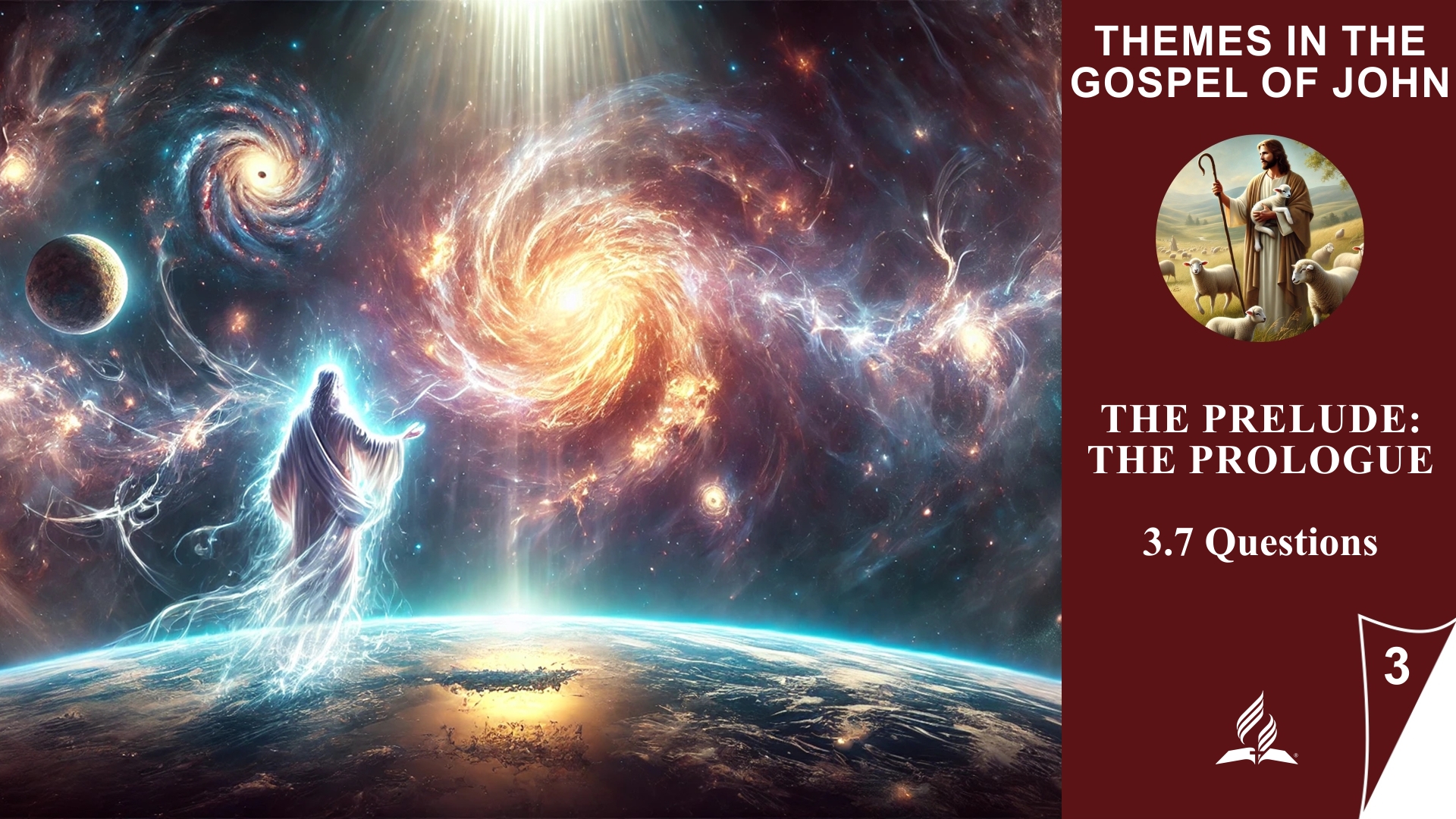


1.Why does John begin by speaking about Jesus in His role as Creator? What does this tell us about the significance of creation in the entire theology? Why is it important that we have a correct understanding of creation as revealed in Holy Scripture?
John begins his Gospel by speaking about Jesus in His role as Creator to emphasize the divine nature of Jesus and to clearly establish His eternal existence. Through the words “In the beginning was the Word… and all things were made through Him” (John 1:1–3), it becomes clear that Jesus was not just a human but the eternal God who brought the universe into existence. This creative activity shows that Jesus existed before time and was actively involved in the creation of all things.
Significance of Creation in Theology:
Creation is a fundamental theme in theology because it reveals who God is—the Creator of the universe, the origin of all life, and the source of order and meaning in the world. Creation lays the foundation for many central biblical teachings, including the sovereignty of God, the nature of humans as the image of God, and humanity’s responsibility for creation. Understanding creation helps us recognize the glory of God in His work and His power over everything that exists.
Why is a correct understanding of creation important?
A correct understanding of creation, as revealed in Holy Scripture, is important because it shapes our entire worldview and faith life. When we comprehend creation as God’s work, we recognize His authority and the significance of His commands. Moreover, it deepens our understanding of redemption since the Creator who brought everything into being is also the one who redeems the fallen creation through Jesus Christ.
A biblical understanding of creation also protects us from ideological errors, such as believing that the world arose by chance or that humans have no special place in creation. It reminds us that we were intentionally created by a loving God and that our lives have a deeper purpose beyond mere physical existence.
In summary, John’s emphasis on Jesus as Creator shows that our faith in Christ is closely tied to our understanding of creation. This understanding helps us recognize God’s greatness and glory and lays the foundation for a deep, holistic theological worldview.
2.Engage more deeply with the question posed at the end of the Sunday section. What happens to the cross if not the eternal God, but a created being dies on it? What would we lose if Jesus were anything other than the eternal God?
If Jesus were not the eternal God but merely a created being, it would have profound implications for the meaning of the cross and the entire Christian doctrine of salvation. The redemption and sacrifice of Jesus would not be sufficient to bear the sins of all humanity and redeem us from separation from God. Here are some key points that illustrate what is at stake:
-
Effectiveness of the Sacrifice Only God Himself—the infinite, eternal, and perfectly holy Creator—could offer a sacrifice that is large enough to take upon Himself the sin of the entire world. A created being, even if perfect, could never pay the infinite price required by sin. The sacrifice of a created being would be limited and not universally valid. However, because Jesus is the eternal God, His death on the cross has infinite value and is sufficient to atone for the sins of all humanity.
-
Divine Sinlessness A created being could fall into temptation and sin, as happened with Adam and Eve. Only God is absolutely holy and impeccable. If Jesus were not the eternal God, His ability to remain perfectly sinless and thus be the perfect sacrifice would be in question. However, because Jesus is God, He was able to live a completely sinless life, which is necessary for the redemption of humanity.
-
Authority Over Life and Death Only the eternal God has authority over life and death. If Jesus were not God, He would not have the authority to willingly give His life and take it up again (John 10:18). His resurrection would be meaningless, and thus the Christian hope of eternal life would be undermined. But because Jesus is God, He has authority over death and grants eternal life to all believers through His resurrection.
-
Perfect Revelation of God If Jesus were not God, He could not be the perfect revelation of God. The prologue of the Gospel of John (John 1:1–3) clearly states that Jesus is the “Word” of God—the perfect image of the Father. He reveals who God is because He Himself is God. If Jesus were a created being, our revelation of God would be incomplete and distorted.
-
Access to God Through Jesus, the Son of God, we have access to the Father (John 14:6). If Jesus were not the eternal God, this access would not be possible. He is the mediator who heals the rift between God and humans because He perfectly represents both God and man. Without His divinity, this mediating role would fall apart, and we would have no way to relate to God.
Conclusion:
If Jesus were not the eternal God, the cross would lose its meaning and power. The entire Christian hope of salvation would be called into question. We would lose the assurance that our sins are fully forgiven, that we can attain eternal life, and that Jesus is the perfect and impeccable Redeemer. Therefore, the divinity of Jesus is a central component of the Christian faith that forms the foundation for our salvation and relationship with God.
Visited 65 times, 1 visit(s) today






